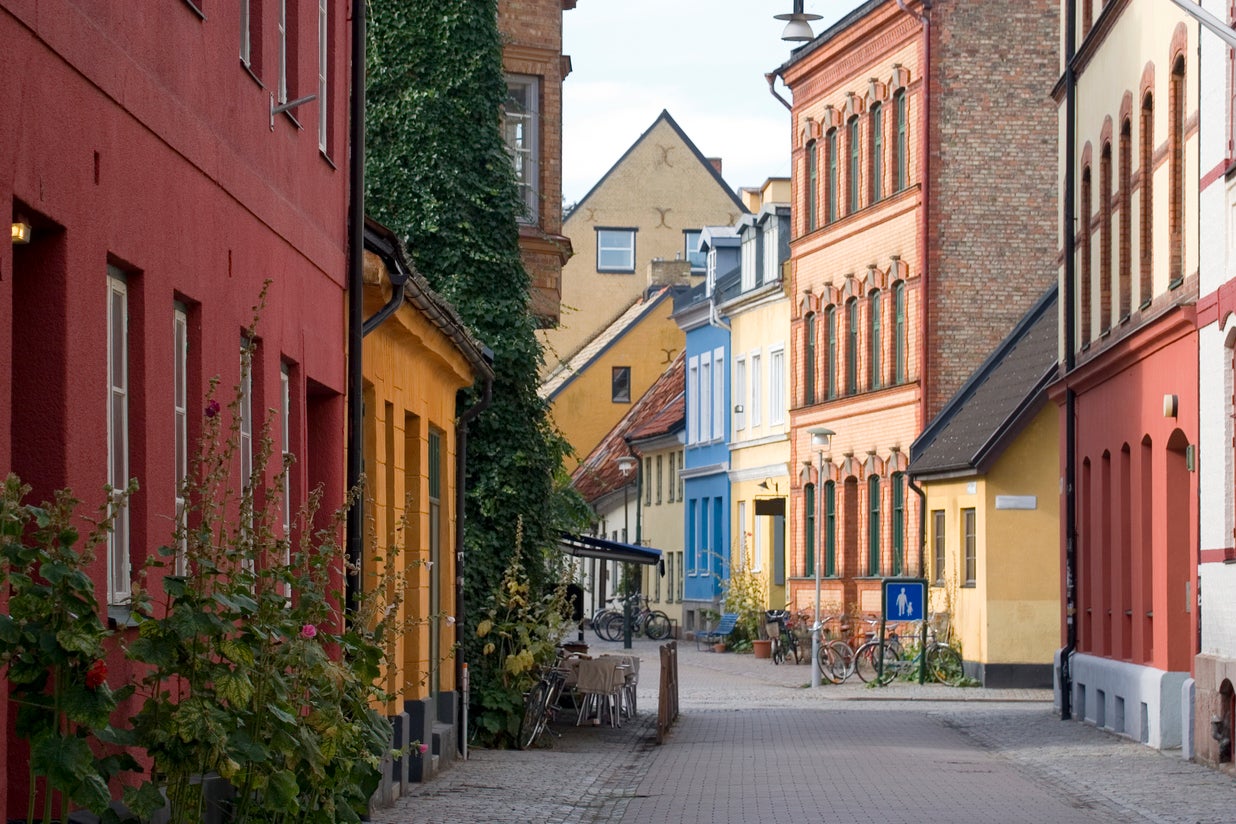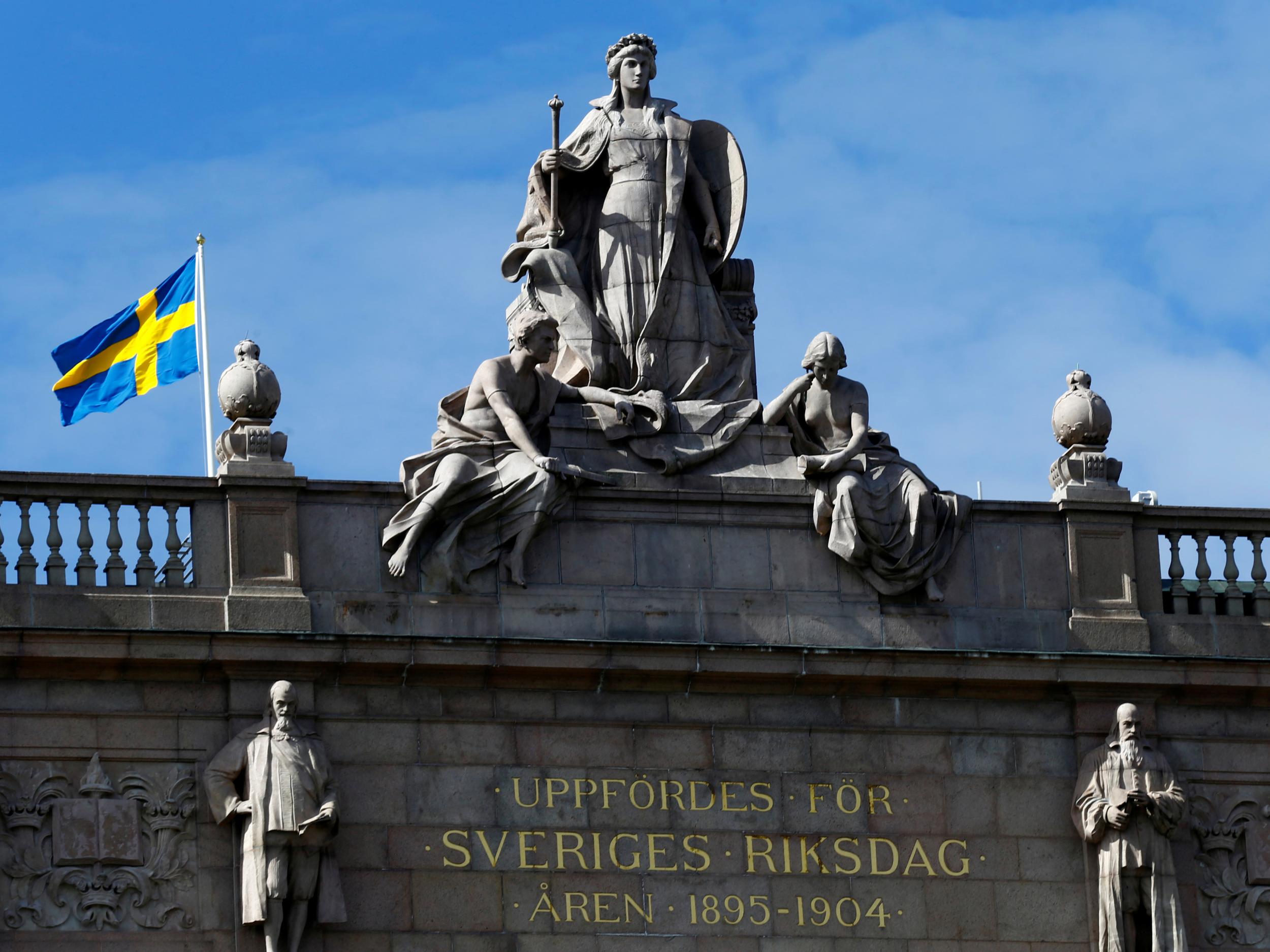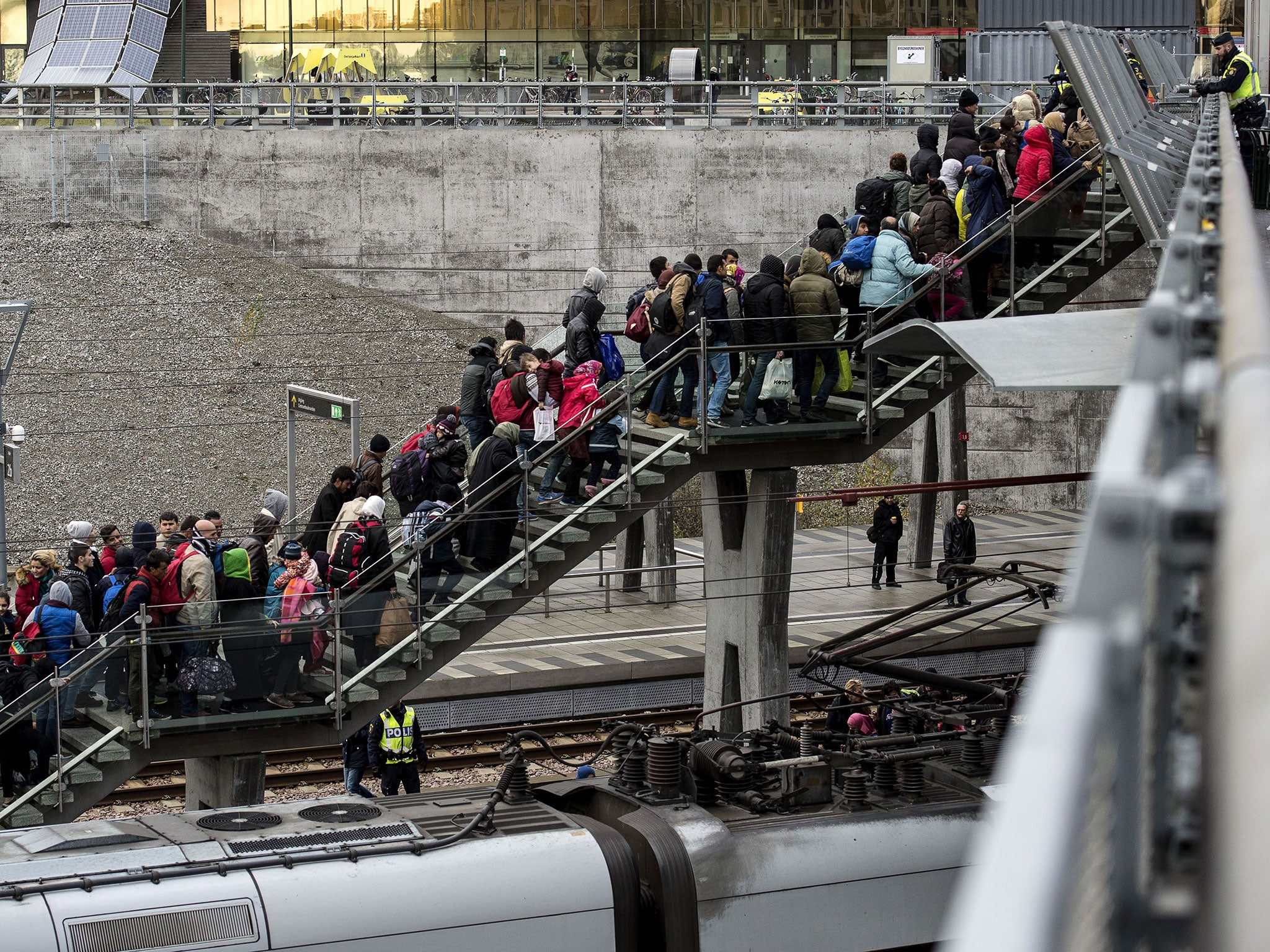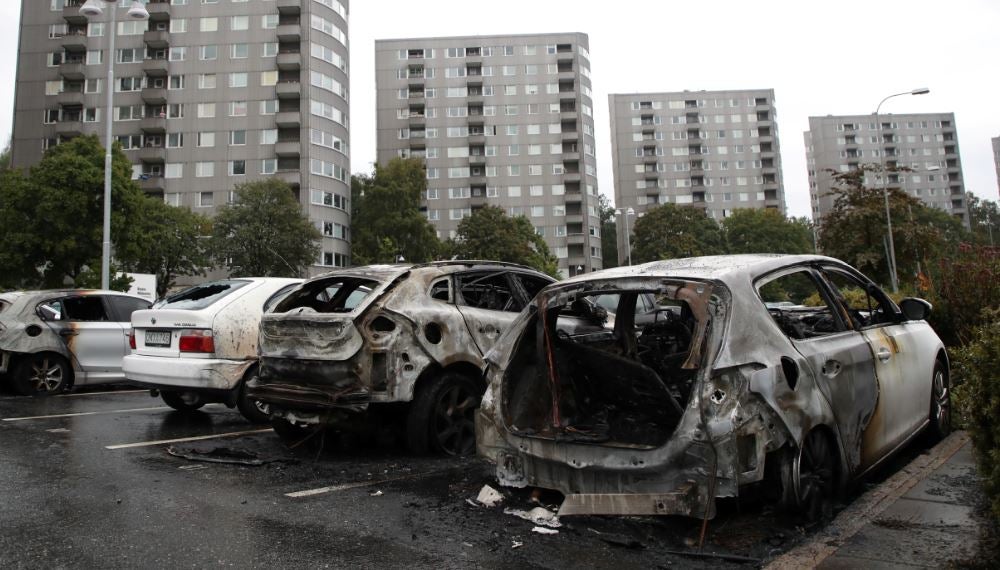Sweden Democrats: How a nationalist, anti-immigrant party took root in a liberal Nordic haven
In the aftermath of the 2015 refugee crisis, the populist party have become an unavoidable force in society and in parliament
Your support helps us to tell the story
From reproductive rights to climate change to Big Tech, The Independent is on the ground when the story is developing. Whether it's investigating the financials of Elon Musk's pro-Trump PAC or producing our latest documentary, 'The A Word', which shines a light on the American women fighting for reproductive rights, we know how important it is to parse out the facts from the messaging.
At such a critical moment in US history, we need reporters on the ground. Your donation allows us to keep sending journalists to speak to both sides of the story.
The Independent is trusted by Americans across the entire political spectrum. And unlike many other quality news outlets, we choose not to lock Americans out of our reporting and analysis with paywalls. We believe quality journalism should be available to everyone, paid for by those who can afford it.
Your support makes all the difference.Sweden is about to hold a general election in which concerns about immigration have risen to the top of the political agenda. It is a narrative that the populist Sweden Democrats have fuelled, and one from which they are increasingly reaping rewards.
Formed in 1988 with roots in the neo-Nazi movement, the Sweden Democrats have doubled their vote at every election since 2000, entering the Riksdag for the first time in 2010. Now, as the 2018 vote looms, polls are regularly placing the party between 20 and 25 per cent – which could make them the second largest party in parliament.
The position in which Sweden finds itself is a result of the same issues which have disrupted politics across the western world in recent years: anti-immigrant sentiment, a resurgence of nationalism, and a longing to turn back time on social change.
The feelings that contributed to creating Brexit Britain and Trump’s America – undoubtedly coming as shocks to the UK and US – have taken root even in this famously liberal Nordic haven.
Over the past few decades, Sweden has offered a home to a greater share of immigrants and refugees than most of its European neighbours. People have come from the Middle East, Africa, Latin America and eastern Europe, and Sweden has been seen as embracing the multiculturalism this brought.
With its emphasis on the role of the state and strong moral values, some on the political left held up Sweden as a socialist utopia. But now, a resurgent right – at home and abroad – is determined to highlight what they perceive as trouble in paradise.
Their charge is simple: that behind the rosy veneer, too many immigrant communities have not assimilated into Swedish society, but have imported problems of their own – leading to parallel societies, a rise in crime, and a strain on the historically generous welfare state.
Amid conflicting narratives, convenient statistics and an unhealthy culture of confirmation bias, the internet presents two very different pictures of Sweden. But speak to anyone with first-hand experience, and they will concede that the truth is somewhere in the middle.
Fabian Moraga, 40, first came to Sweden in 1981 when his family fled political oppression in Chile. He said his family assimilated well into Malmö at the time, but cites a shift in public opinion which first began in the early 1990s.

“There were a lot of refugees from the Balkans. A lot of them were criminals, a lot of them didn’t have the same opportunities that I had when I came. So I would say the environment changed. It was then that parties which were against refugees started to gain support.”
Malmö is often slapped with some of the more damning descriptions in the discourse around Sweden. The city has been called “the rape capital of Europe” by Nigel Farage, and its notorious Rosengård area – the scene of riots and disorder in recent years – has been described as a no-go zone, even for the emergency services. Mr Moraga said this is not a fair depiction.
“Malmö is segregated for sure. If you’re Turkish, you will live with other Turkish families in the same area, that’s just about feeling secure, but I wouldn’t say it’s that bad. Rosengård is only one street, compared with how big the whole area is. And the media is covering mostly the conflict between two gangs. So criminality happens, but it’s not a no-go zone.”
The Sweden Democrats have sought to feed on fear of places like Rosengård for electoral gain. Blaming immigration and multiculturalism for many of the country’s present problems, they call for the repatriation of refugees, a reestablishment of Swedish identity, a firmer approach to law and order, and a referendum on EU membership. They are in favour of a “Swexit”.

Anders Sannerstedt is an associate professor at Lund University who studies the Sweden Democrats and their supporters.
“I describe them as populist and anti-immigration. When it comes to economic issues, they are a bit more to the right on taxes, but they are more to the left when it comes to spending, so they are in the middle. Originally, they had their core support in the south of the country, among blue collar, less educated male voters. But nowadays their voters come from all over society.”
He believes their growth is entirely a reaction to government policies around immigration and integration.
“In the opinion polls, we have been asked the same question every year since 1990: do you think it’s a good or a bad idea to reduce the number of refugees, and every year more people say it’s a good idea.”
Despite this, the government – often led by the dominant Social Democrats – has continued to pursue a generous refugee policy.
Since the outbreak of the Syrian civil war in 2011, tens of thousands of refugees have been arriving in Sweden every year. Rafa Salti, 29, was one of those who arrived in 2013, after fleeing an impossibly dangerous situation. She now lives in Stockholm, and said she has always been made to feel welcome.
“Everyone is aware of the situation in Syria, so at first people would say, ‘Oh I’m so sorry’, but as the years have gone on it’s a little bit more normalised. I don’t get as many sad faces. Sometimes I might get an emotional old lady who will say, ‘Oh you’re very welcome!’ and a comment on how good I speak the language, or how good it is that I’m working.”
It is evident from these comments that such Swedes mark her out as a “good immigrant”, she said, but more often it is the troublemakers who dominate the headlines. She believes such duality is typical of any society.
“The image presented of Sweden is always a perfect one, the guy who founded Spotify, and so on. There is a lower class of people here too, you just don’t see it – people who are just as bad as the worst immigrants.”
She believes that while some people vote for the Sweden Democrats because of fundamental racism, the majority of their voters are drawn in by emotive media coverage which depicts immigrants unfairly.
“The things that people write in the media have no connection to reality. Nobody talks about any real or useful information in public political debate, it’s always just emotional stories.”
Stories didn’t get more emotional than during the peak of the Syrian refugee crisis in the summer of 2015, when hundreds of thousands risked their lives to reach the borders of Europe.

In the year that followed, a record 163,000 immigrants arrived in Sweden. “It was obvious that Sweden could not handle a huge number of refugees,” said Professor Sannerstedt. The shift in the political discourse and the subsequent rise in support for the Sweden Democrats showed that this was a turning point for the country.
The party has also been benefiting in recent months from increasing reports of crime and rape around the country, including an incident in August when over 80 cars were set on fire by masked gangs in several major cities. Prime minister Stefan Löfven condemned the attacks, which he said looked like “a military operation”.
Such incidents have been linked to immigrant gangs by right-wing publications and the echo chambers of social media. As with other populist and right-wing movements, the internet is where the Sweden Democrats really come into their own.
The party’s Facebook page accounted for 47 per cent of all Facebook engagement by the major political parties over the last year, according to recent data. Their widely shared posts cover familiar themes: welfare before mass immigration, banning the burqa, and showing off the big crowds that turn out at rallies for their leader, Jimmie Åkesson.

Sweden also fears the now familiar spectre of digital interference in the election, after a recent surge in fake anti-immigrant Twitter accounts. Regardless of whether that makes a difference on 9 September, the Swedish political establishment will have to face the growing reality of the Sweden Democrats.
Patrik Ohberg is a professor in political science at the University of Gothenburg who believes the party is now a key player in Swedish politics, stealing policy ideas from other parties, and taking voters with them. “They are big and loud and they are here to stay,” he explains.
“The Sweden Democrats have been normalised in that now everybody talks about immigration. It was problematic to talk about these issues just four years ago. And the establishment parties went from not wanting to discuss these issues to becoming more restrictive in their policies.”
But whether they will shift their position to do business with the party, is another matter altogether. Thus far, they have maintained a cordon sanitaire around the group in parliament, but this could be the election that forces that to change.
With the left and right polling around 40 per cent each, by taking over 20 per cent of the vote, the Sweden Democrats could be in the position of kingmakers in a coalition government – most likely with the right-leaning parties.
“For a long time Sweden wanted to be the role model for Europe,” said Professor Ohberg, “but the role model didn’t work. Suddenly, we have one of the strongest anti-immigrant parties in Europe. The Sweden Democrats are continually on the rise and so our self image is changing.”
Regardless of whether this comes to pass, the story of the Sweden Democrats is evidence of how populism can take root anywhere – even in a country regularly named as among the happiest in the world.

Join our commenting forum
Join thought-provoking conversations, follow other Independent readers and see their replies
Comments